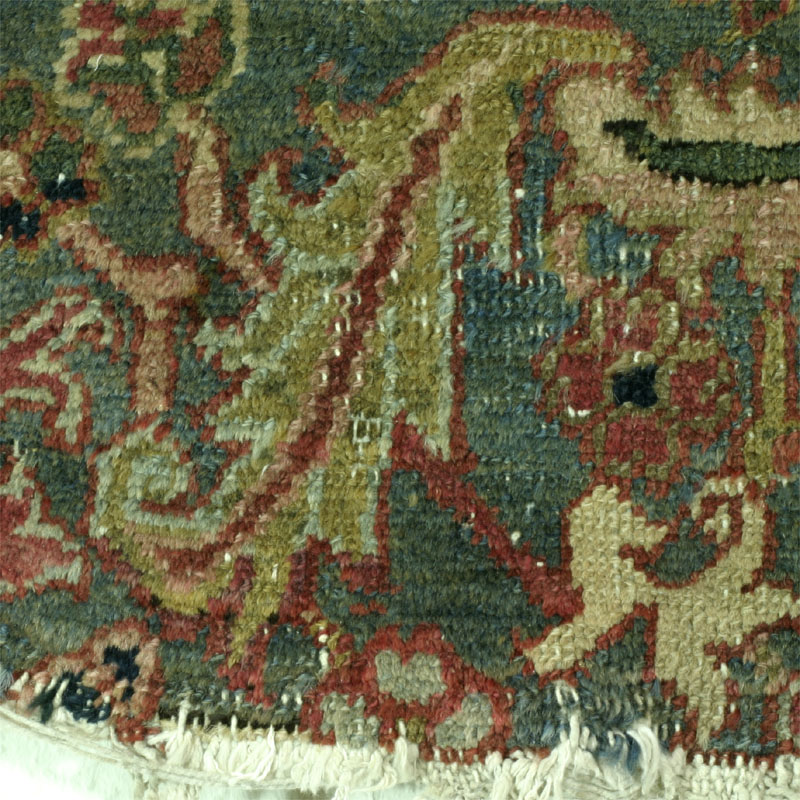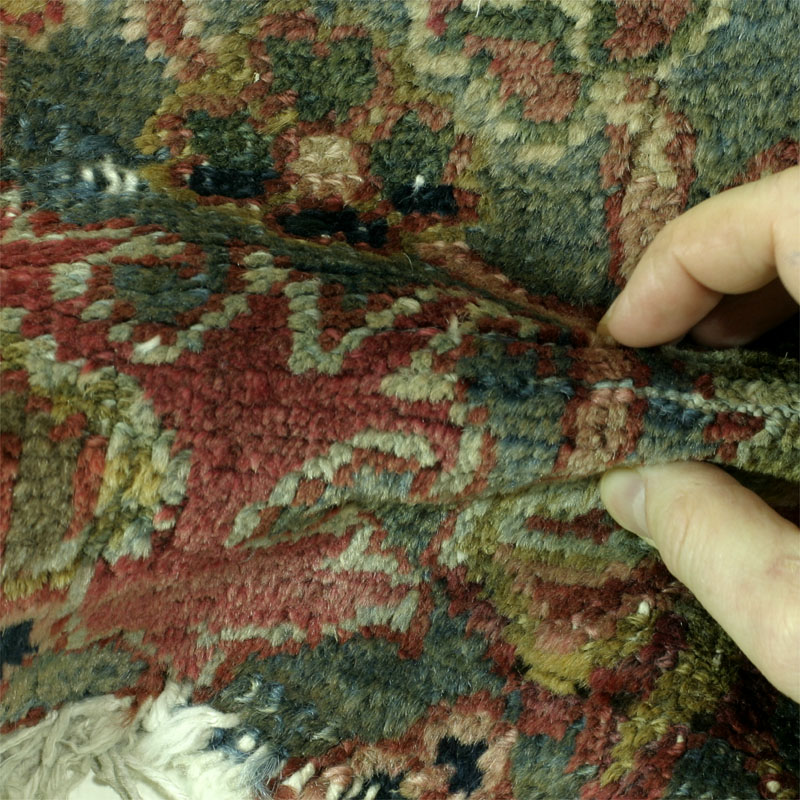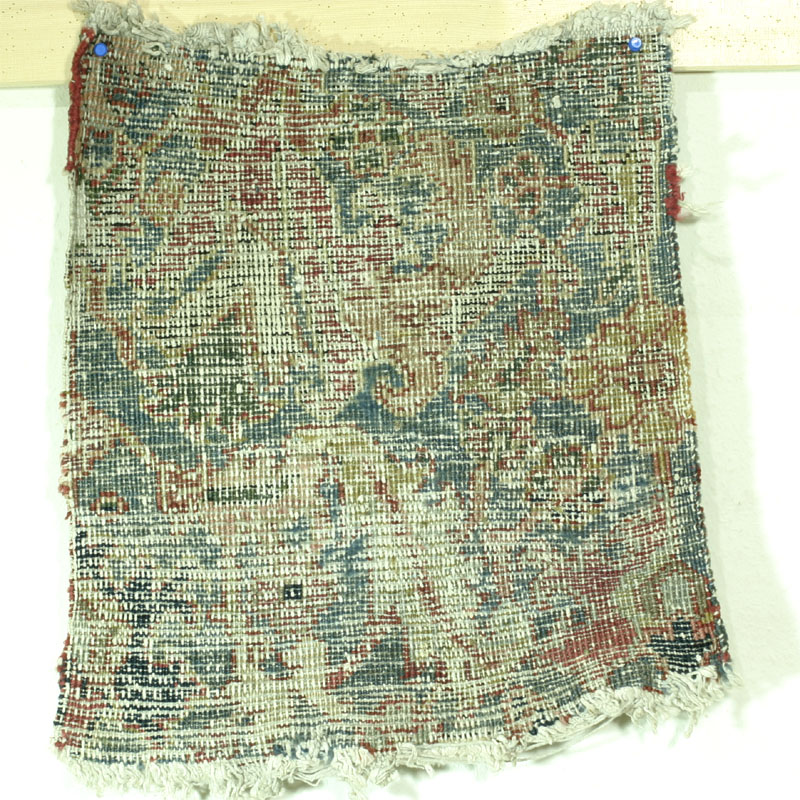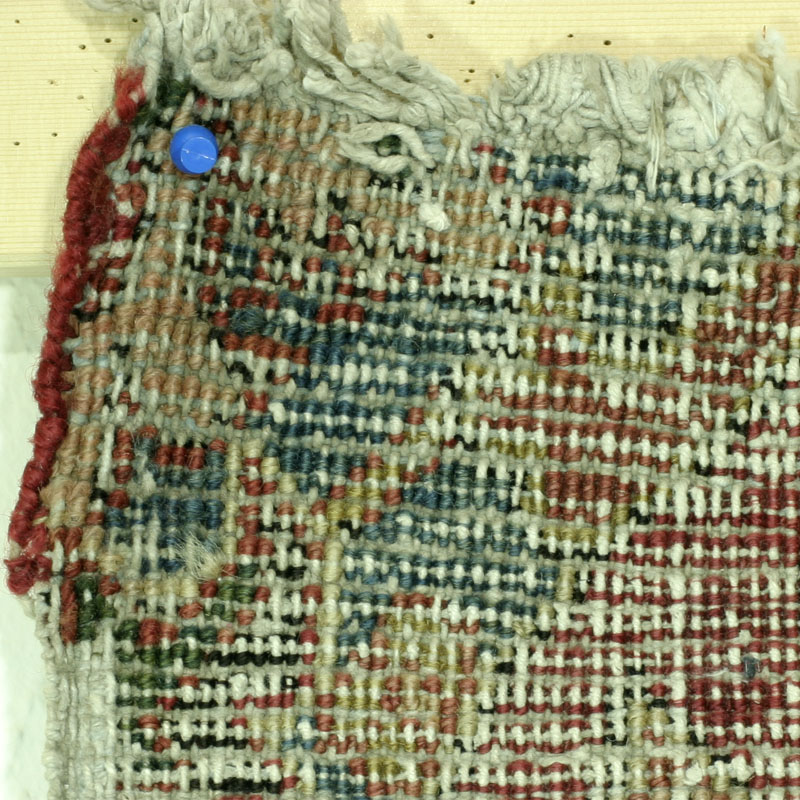This is a Heriz Mehrivan (Meriban, Merhaban) Wagireh or sampler showing an all-over pattern. According to P.R.J. Ford, Mehrivan is the second grade of Heriz area carpets (Heriz being the first, Georovan the third). Heavy irregular cotton base, deeply depressed (but not fully). Somehow the coarse weave and the characteristics of the floral forms said Heriz to me but the sampler was much too free-form to map onto any type of medallion Heriz rugs I had come across during searches. Until, after much searching, I found a recent execution of the coarse floral all-over pattern recorded in this sampler in fig. 464 Mehrivan, p.206, Ford, Oriental Carpet Design (see image - turned to b&w to not detract from the subtle colours in this wagireh). The clue was the way the large (oak?) leaf curls. Heureka! These are the rewarding moments in rug madness when, after a lot of fruitless searching, you suddenly hit home.
Cotton base, coarse irregular-looking weave, fat cotton warps, light greyish-blue cotton wefts, Symmetrical knotting, semi-depressed, 7.h, 6.v = 42 kpsi. Two weft shoots seem to alternate with one shoot, if I am not mistaken. It is a very curious weave pattern indeed—please look at the picture of the back!
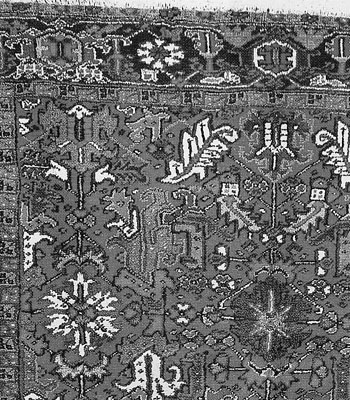
|
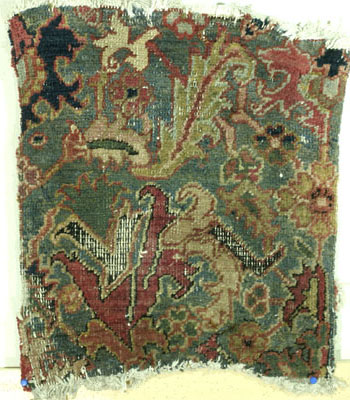
|
| Mehrivan Heriz rug. Picture quotation from P.R.J. Ford: Oriental Carpet Design, fig. 464 Mehrivan, p.206. | Mehrivan Heriz wagireh, representing an older and slightly more curvilinear version of the design to the left. |
This old wagireh has very nice subtle dyes, beautiful shades of green, rose, blue. I guess it was made around 1900–1930 not all colours are based on natural dyes: looking into the pile of the subtle light blue-green, you discover a medium cobalt blue. It must have taken on a greenish cast under exposure to light. The beige was once a pink. The reds have no tip fading and are probably madder based and close to what they originally looked like. The khaki green of the oak leaf is also unfaded. As so often, the dark brown is corroded and those parts show the cotton foundation.
Whatever the original colour combination has looked like, it is very nice as it is now—I was first convinced that these were all natural dyes until I looked into the pile.
